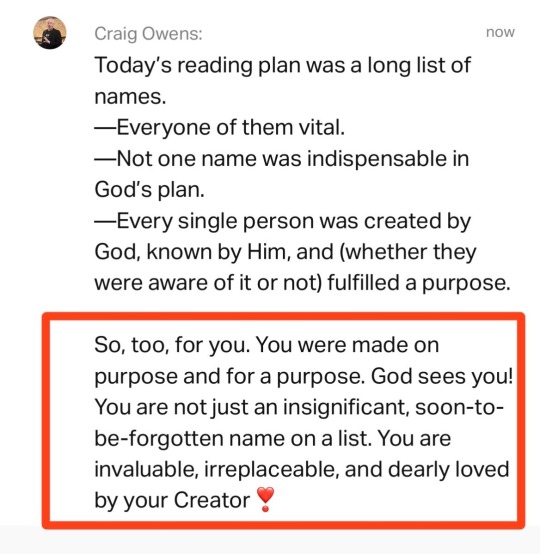#biblical history
Text

Artemisia Gentileschi, Judith and Her Maidservant, c. 1623-1625
#artemisia gentileschi#judith slaying holofernes#baroque art#italian art#art history#baroque#italian history#italian painter#female painter#biblical history#jewish history#chiaroscuro#tenebrism
340 notes
·
View notes
Text
I am imagining Aziraphale and Crowley in Jerusalem in 70 CE. Aziraphale is aiding the Romans’ siege (because, God’s plan). It is Crowley’s suggestion to smuggle Yochanon Ben Zakkai out in a coffin (because, thwarting God’s plan. Also corpse uncleanness for a holy man). Crowley is with Yochanon’s disciples in the hills outside the city. They watch the Temple burn and they weep. Crowley weeps with them; they are losing their connection to God, as he did in the fall.
One of the assembled asks the rebbe how they will serve God now that they can no longer offer sacrifices. When the answer comes back “acts of loving-kindness will replace Temple sacrifice,” the demon rolls his eyes, and almost immediately sights the unlikely blonde head in the distance. The sun catches it and the halo is visible even to his snake eyes. “Acts of loving-kindness will be repair our severed connection to the One,” the rebbe says again.
There is a stillness as the rebbe’s words settle into the hearts and minds of the men (and one man-shaped being) around him. The demon stares at the halo bobbing around the edges of the mayhem far below, and for the first time in a long time, he feels something a little like hope.
#crowley x aziraphale#aziracrow#neil gaiman#Biblical history#Talmud#Based on what we saw in the Job minisode#Crowley empathizes with human relationships with God#Crowley is all about acts of loving-kindness for his Angel#Jewish good omens#good omens#ineffable husbands#good omens Talmud mashup#it’s a niche audience#maybe Neil himslef?
166 notes
·
View notes
Text
A snippet of #CoffeeWithACodex featuring Ms. Codex 725, a Biblical and Church history from the 15th century! This manuscript has a timeline down the center of the pages that traces history from Adam & Eve all the way to Pope Sixtus IV (1471). If you'd like to see more, the complete 30-minute video is on YouTube.
🔗:
#medieval#manuscript#medieval manuscript#15th century#illustration#history#timeline#church history#biblical history#book history#rare books
43 notes
·
View notes
Text
Who wrote the Bible? You Decide 🤔
Think About It 🤔
#pay attention#educate yourself#educate yourselves#knowledge is power#reeducate yourself#reeducate yourselves#think for yourself#think for yourselves#think about it#do your homework#do some research#do your own research#do your research#history lesson#world history#biblical history#you decide
86 notes
·
View notes
Text
so even though i'm not religious, biblical history and theology has been a recent interest of mine (thank you @apocrypals) so I'm watching this netflix show The Chosen which is about Jesus and bible times and the way the characters around him always point out that he's from Nazareth of all places is hilarious cause the vibe is very much "Josh? From Shithole, Florida???" and it gets funnier everytime they repeat the bit
25 notes
·
View notes
Text
in his book 1984 George Orwell foresaw a time when a "Ministry of Truth" would rewrite all books and refashion all ideas so as to make them fit the requirements of the men in power. But the horrifying thing is that this is not yet to come. It already happened long ago almost everywhere in the ancient world.
In the Middle East, first in Mesopotamia and Canaan, and later in the Hebrew kingdoms of Judaea and Israel, the remaking of sacred stories, along with the rewriting of codes of law, was largely the work of priests. As in Old Europe, this process began with the first andro-cratic invasions and continued for millennia, as Egypt, Sumer, and all the lands of the Fertile Crescent were gradually transformed into male-dominant and warlike societies. And as biblical researchers have now extensively documented, this process of re-mything was still going on as late as 400 B.C.E., when scholars tell us Hebrew priests last rewrote the Hebrew Bible (The Old Testament).
-Riane Eisler, The Chalice and the Blade: Our History, Our Future
23 notes
·
View notes
Text
Your Irreplaceable Genealogy
Have you ever felt like a nameless face in the crowd? Let me tell you what you should do with those thoughts.
Listen to the podcast of this post by clicking on the player below, and you can also subscribe on Apple, Spotify, or Audible.
https://craigtowens.files.wordpress.com/2024/01/your-irreplaceable-genealogy.mp3
Have you ever felt like a nameless face in the crowd? Let me tell you what you should do with those thoughts.
Check out this episode of The Podcast.
Some resources from this episode:
The…

View On WordPress
9 notes
·
View notes
Text

"It's fair to say that the Bible contains equal amounts of fact, history, and pizza."
-- Penn Jillette
#Penn Jillette#bible#christianity#bible study#bible nonsense#biblical history#history#fact#bible facts#bible pizza#religion#religion is a mental illness
36 notes
·
View notes
Note
Dr. Reames, forgive me if this question has been answered before. Recently I read that Alexander the Great and his kingdom were mentioned in the Bible, more precisely in the Book of Daniel, depicting his victory against the Persians and the formation of the successor kingdoms.
From the King James Version:
3 Then I lifted up mine eyes, and saw, and, behold, there stood before the river a ram which had two horns: and the two horns were high; but one was higher than the other, and the higher came up last.
4 I saw the ram pushing westward, and northward, and southward; so that no beasts might stand before him, neither was there any that could deliver out of his hand; but he did according to his will, and became great.
5 And as I was considering, behold, an he goat came from the west on the face of the whole earth, and touched not the ground: and the goat had a notable horn between his eyes.
6 And he came to the ram that had two horns, which I had seen standing before the river, and ran unto him in the fury of his power.
7 And I saw him come close unto the ram, and he was moved with choler against him, and smote the ram, and brake his two horns: and there was no power in the ram to stand before him, but he cast him down to the ground, and stamped upon him: and there was none that could deliver the ram out of his hand.
8 Therefore the he goat waxed very great: and when he was strong, the great horn was broken; and for it came up four notable ones toward the four winds of heaven.
9 And out of one of them came forth a little horn, which waxed exceeding great, toward the south, and toward the east, and toward the pleasant land.
10 And it waxed great, even to the host of heaven; and it cast down some of the host and of the stars to the ground, and stamped upon them.
20 The ram which thou sawest having two horns are the kings of Media and Persia.
21 And the rough goat is the king of Grecia: and the great horn that is between his eyes is the first king.
22 Now that being broken, whereas four stood up for it, four kingdoms shall stand up out of the nation, but not in his power.
Considering that the Book of Daniel was written well after Alexander’s conquests, can we confirm that this verses are indeed about him? I couldn’t find any reliable source on this topic.
And also, considering the Seleucid Empire that succeeded Alexander in the region, Hellenism and the Maccabean revolt. Can this depiction, if it is indeed of Alexander, be considered faithful to how he and his deeds were perceived during his lifetime? Is this depiction of Alexander and the Diadochi usual, or does it depart from how they perceived and advertised themselves to their subjects? Or is this a particular viewpoint from Judea? And least, to the peoples outside of the Hellenistic sphere, or Greece, could this be considered the way Alexander’s legacy is seen?
Thank you so much in advance, and for going through this painfully long ask!
Yes, Alexander is, indeed, mentioned in the Book of Daniel. I am not an expert on the exegesis of this book, but it does refer to him and the Successor kingdoms, as well.
I don’t think it necessarily reflects how Alexander was viewed throughout the Mediterranean. It’s intended to fit the style of earlier Jewish prophetic literature, although the Tanakh (Hebrew Bible) places it (correctly) among the Writings (Ketuvim), not the Prophets (Nevi’im), as it belongs to the Hellenistic period. So yes, it’s post-Alexander, even if, internally, it claims to belong to the Achaemenid Persian period.
One of the better commentary series on Biblical material (at least from a historian’s POV) is the Anchor Bible Series from Yale Univ. Press. Here's a link to the commentary on Daniel. 😊 It’s been out a while, so you can probably find a used copy pretty cheap, or check it out from your local library. (If they don’t have it, they should be able to get it for you via interlibrary loan.) That will give you a better analysis than anything I can do.
(I’m painfully aware of my limits, ha.)
#Alexander the Great#Book of Daniel#Alexander in Jewish literature#Biblical history#Hellenistic Era#asks#Classics
7 notes
·
View notes
Text

75 notes
·
View notes
Text
I never thought I'd read Torah from a fascist perspective before. However, last week's parsha (portion of reading) contains the ordering of deliberate, supposedly divinely ordained genocide. It genuinely reminds me fascism, whether it be nationalistic historical revisionism or what was actually carried out. I'm not too aware of the historical context, but it's an uncomfortable one and I want to learn more about how it fits in others' Torahs. I'm particularly interested in the opinions of biblical absolutists who believe that the Torah as presented is fully the word of God, and therefore cannot accept an answer based on historical context or revisionism.
6 notes
·
View notes
Video
Today's #FragmentFriday is Oversize LJS 36, a leaf damaged and used as a binding fragment. Written in the 12th c., the text describes the conquest of Ptolemais by Alexander, son of Antiochus II, an event also described in the Book of Maccabees.
Online: bit.ly/3QXYtcG
12 notes
·
View notes
Text
CARTER G. WOODSON:
THE ULTIMATE BLACK NEGRO HISTORIAN.
In 1915, Carter G. Woodson traveled to Chicago from his home in Washington, D.C. to take part in a national celebration of the 50th anniversary of emancipation. He had earned his bachelor’s and master’s degree at the University of Chicago, and still had many friends there. As he joined the thousands of Black Americans overflowing from the Coliseum, which…

View On WordPress
#A writer opinion#be a winner#believing in the promise of God.#Biblical History#biblical insight.#Biblical principles#Black Hebrew Hero.#coming back to the voice of God.#honesty#Publisher
2 notes
·
View notes
Text
“For in the book of Numbers (31:17) we read that after a battle against the Midianites, while still under the leadership of Moses and Aaron, the Israelites were told: ‘Kill every male dependant, and kill every woman who has had intercourse with a man, but spare for yourselves every woman among them who has not had intercourse.’ In Num. 31:32-35, we read a list of the spoils and war booty taken by the Israelites at this same battle. In this order, they list sheep, cattle, asses and ‘thirty-two thousand girls who had no intercourse with a man.’
In the book of Deuteronomy, also preceding the command of Joshua, we find:
When you wage war against your enemy and the Lord your God delivers them into your hands and you take some of them captive, then if you see a comely woman among the captives and take a liking to her, you may marry her. You shall bring her into your house, where she shall shave her head, pare her nails, and discard the clothes she had when she was captured. Then she shall stay in your house and mourn her father and mother for a full month. After that you may have intercourse with her; you shall be her husband and she your wife. But if you no longer find her pleasing let her go free. You must not sell her, nor treat her harshly, since you have had your will with her [Deut. 21:10-14].
Though once again the numbers may have been somewhat exaggerated, these passages suggest that many of the women who were later known as the wives of the Israelites may well have been the girls who witnessed the murders of all their families and friends and the destruction of their homes and towns. The combination of the fear and trauma they must have felt, having been taken into the Hebrew tribes in this way, along with their memories of their childhood customs and religions must have made their attitude and position in Hebrew life a most difficult one. Though the number of women in the Hebrew tribes is never listed, these passages also suggest that when the Hebrews first left Egypt there may have been a much greater percentage of men. Each of these factors may help to explain the Hebrew women's ‘acceptance’ of the new patriarchal laws.”
-Merlin Stone, When God Was a Woman
15 notes
·
View notes
Text
What The Bible Doesn’t Say
We would do well to pay attention to what the Bible doesn’t say—especially when we have to interact with ungodly leaders. Check out the latest episode of The Podcast.
Listen to the podcast of this post by clicking on the player below, and you can also subscribe on Apple, Spotify, or Audible.
https://craigtowens.files.wordpress.com/2024/01/what-the-bible-doesnt-say.mp3
We would do well to pay attention to what the Bible doesn’t say—especially when we have to interact with ungodly leaders.
Check out this episode of The Podcast.
Some resources from this…

View On WordPress
#1 Peter#1 Timothy#apostle Paul#apostle Peter#biblical history#citizenship#government#history#Romans#video#world history
6 notes
·
View notes